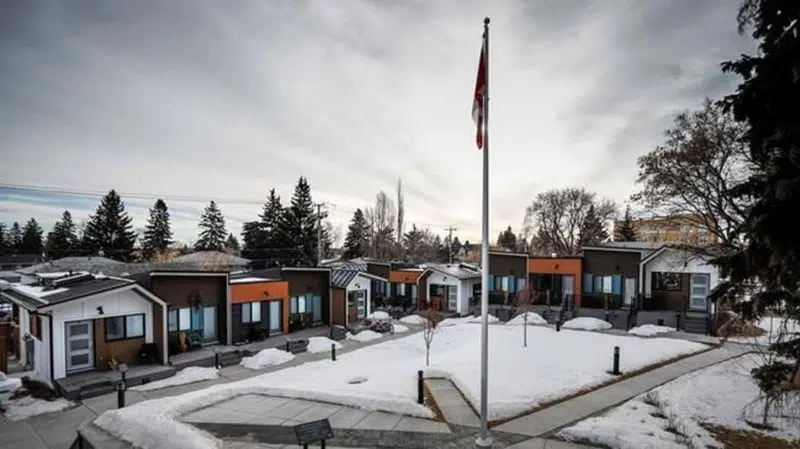
‘A roof over my head:’ Tiny homes provide hope for homeless military veterans
CALGARY — Dirk Lemcke spent 8 1/2 years in a combat regiment with the United States military before he became a truck driver and a painter.
He never expected to be homeless.
Suffering from post-traumatic stress disorder and a number of chronic health problems, Lemcke found himself out of work and spent four months on the streets of Calgary.
“I’ve always been out to help people and being in the situation of having to receive help is a new thing for me. It’s hard,” says Lemcke.


